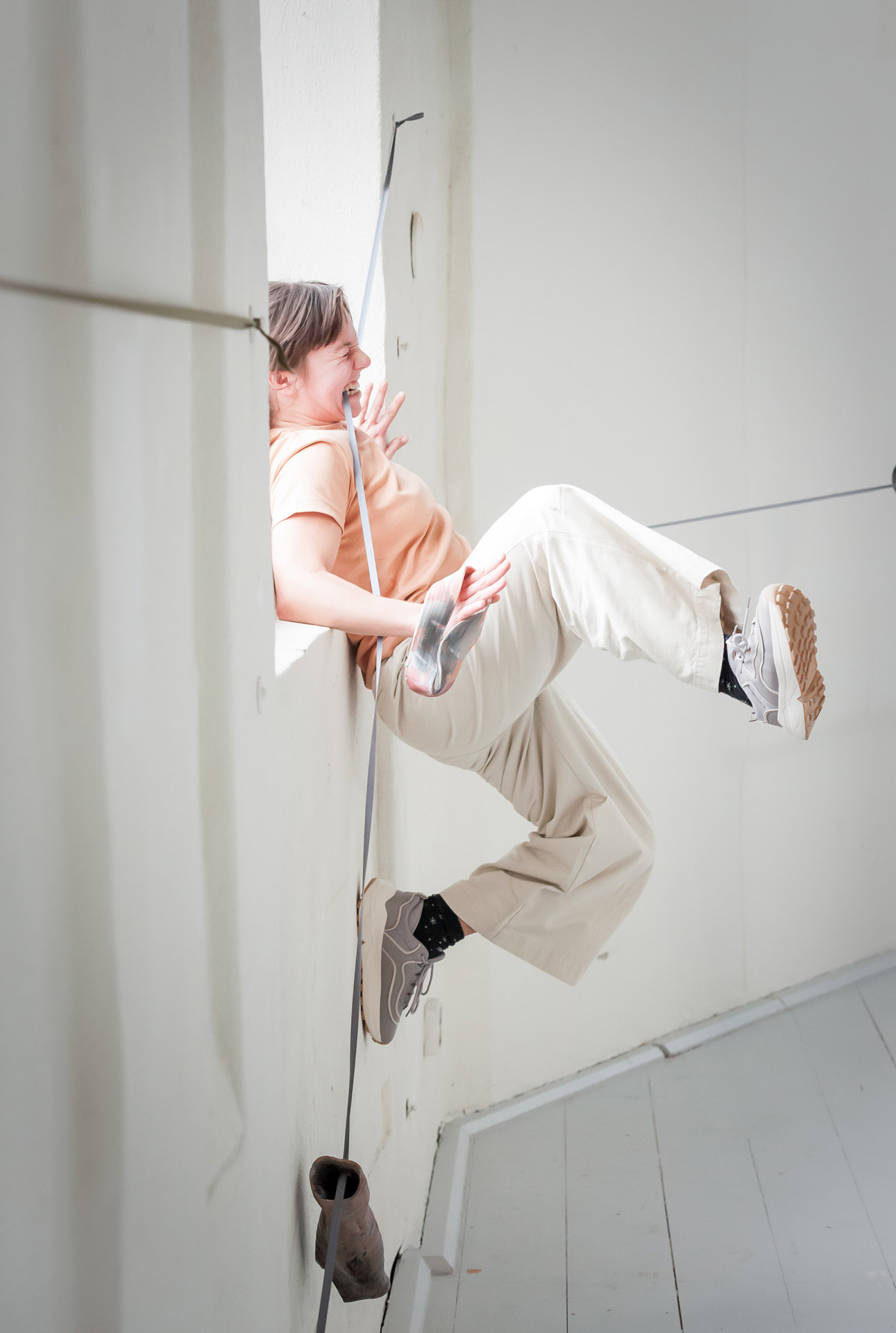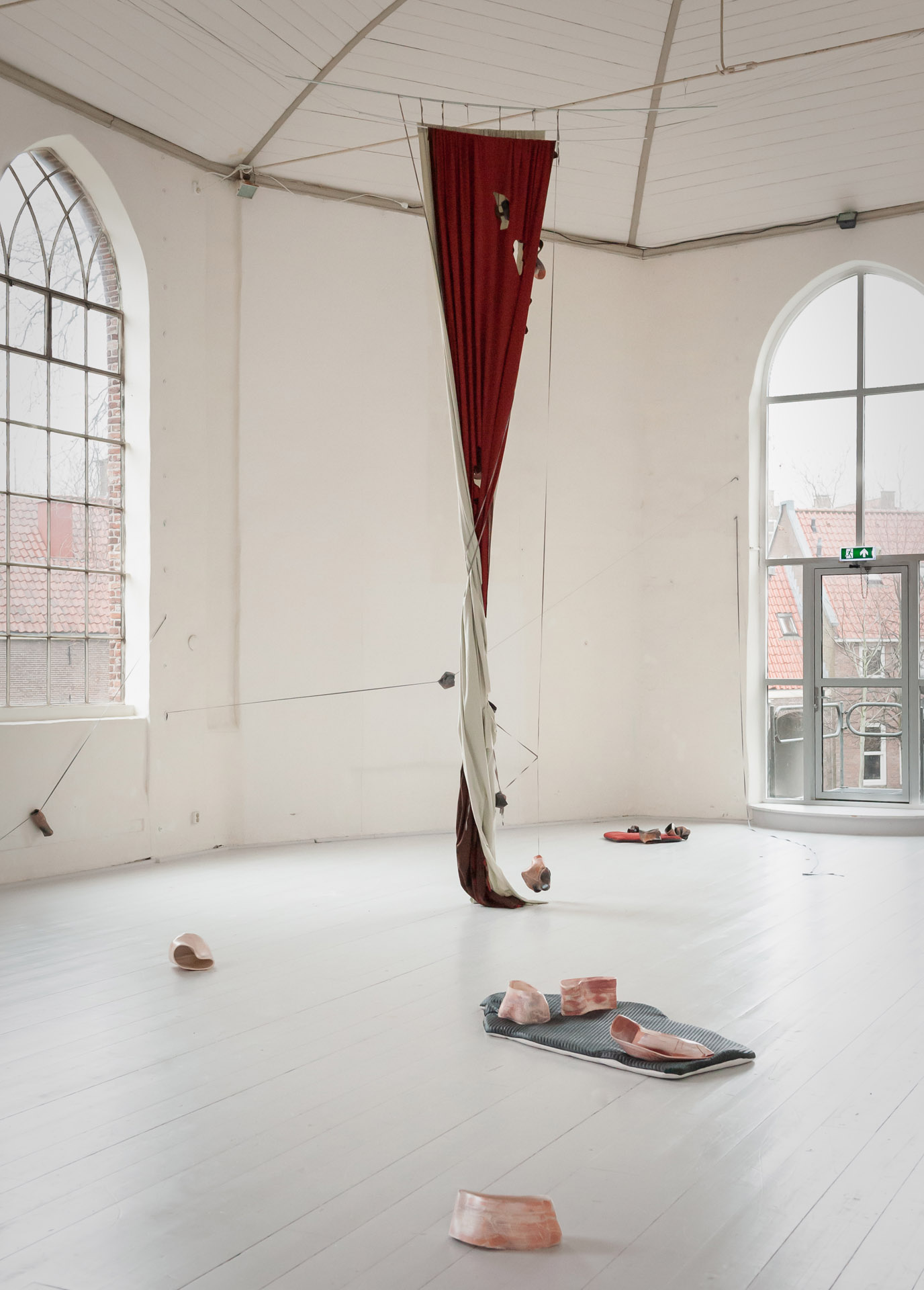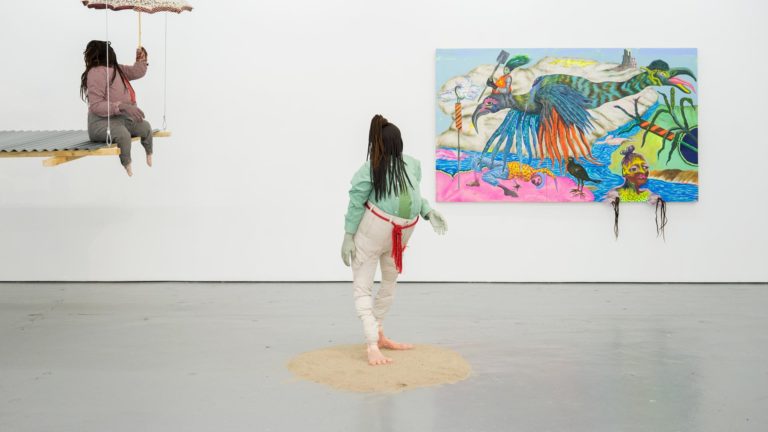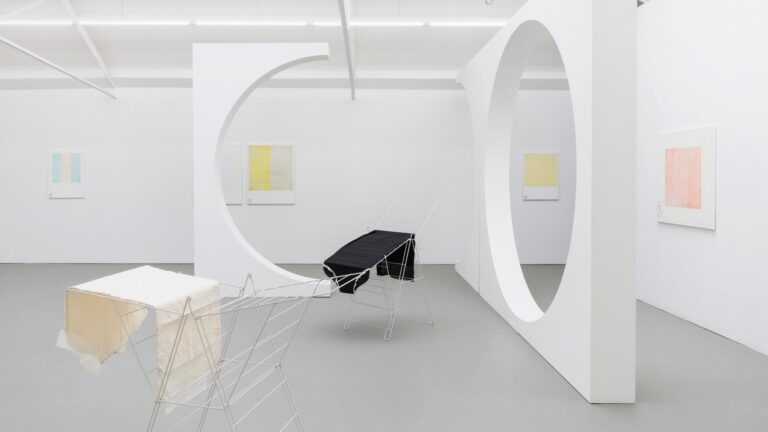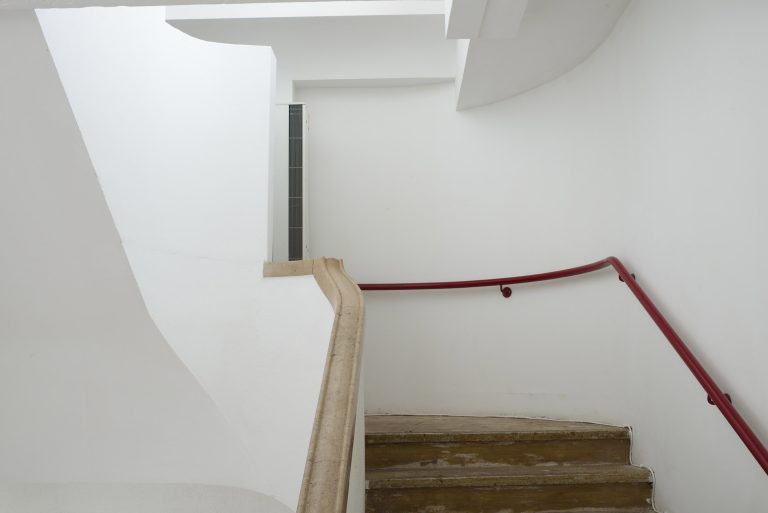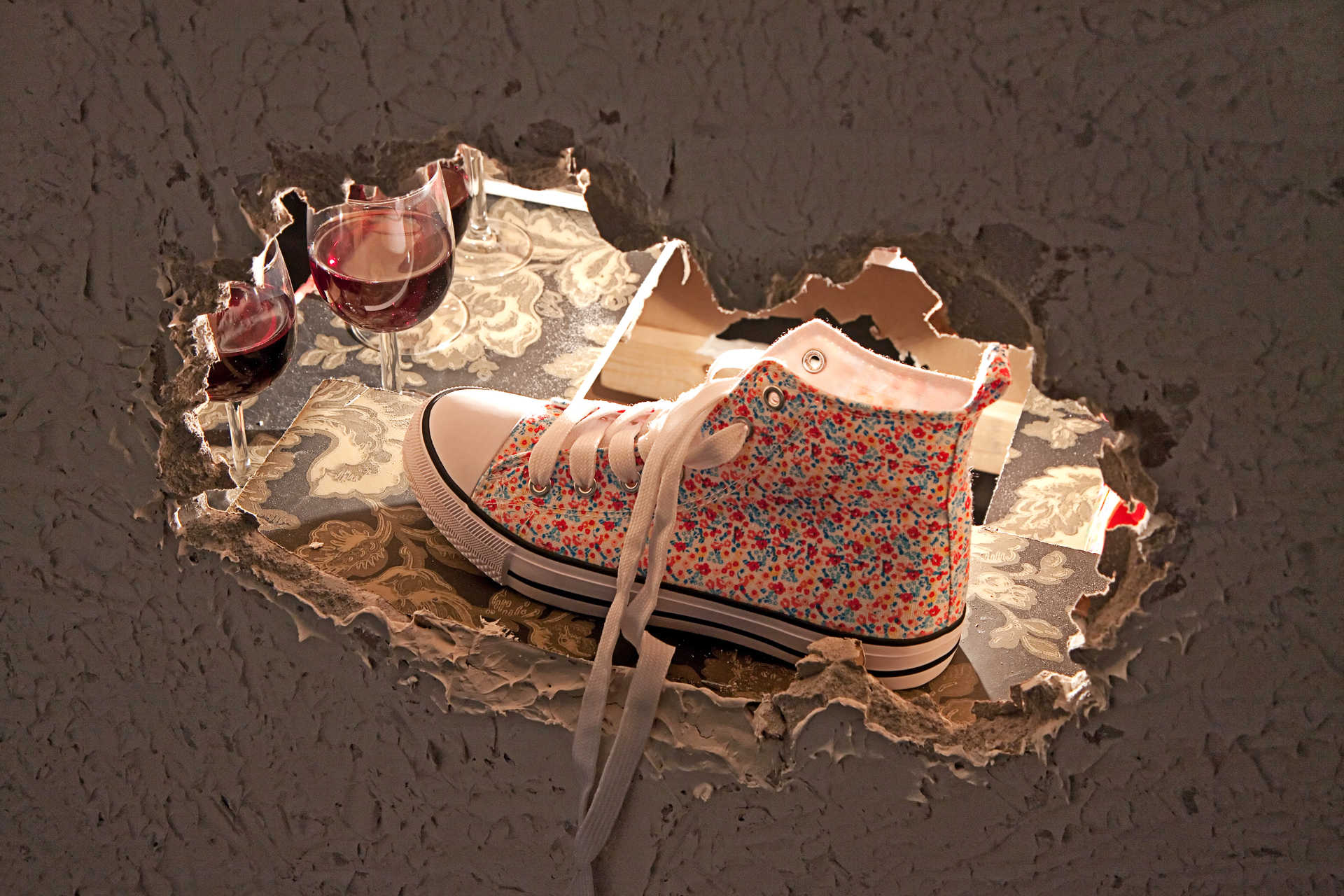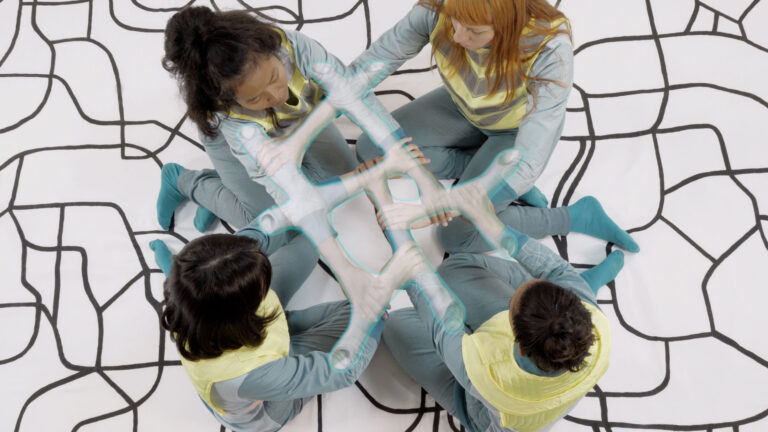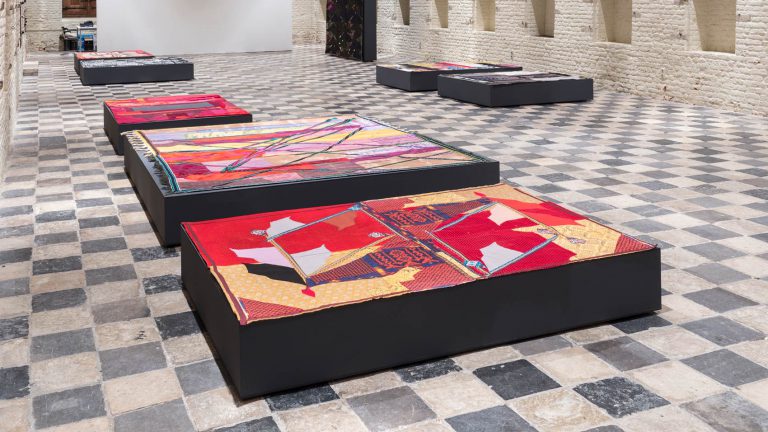Artist: Tamara Kuselman
Exhibition title: A Pool Without a Rim
Venue: Hotel Maria Kapel, Hoorn, The Netherlands
Date: November 2020 – February 28, 2021
Photography: Bart Treuren / all images copyright and courtesy of the artist
In this project, Kuselman explored the idea of stability as both a sociological and a psychological concept, particularly pertinent at this moment when our stability is under siege. Kuselman’s project at Hotel Maria Kapel looks at “the unexpected”; input that destabilizes our known codes and allows new situations, skills and perspectives to arise – something we are all living through in the time of the global COVID-19 pandemic. Suddenly, we have all lost our footing, we are destabilized, both individually and societally, moving into the unknown, waiting out the fall.
For her new commission, Kuselman engaged with specialists in human behaviour within the social and medical sciences and locals of Hoorn (NL) who have themselves experienced being caught by the unexpected and falling through the cracks of the everyday. The research fed into the final installation and film-performance at Hotel Maria Kapel.
During the research for this project, Kuselman exchanged thoughts with different professionals about stability as flexibility, stability as a temporary state held by two forces in tension, stability as avoiding planning to not frustrate expectations or death as the only real stable moment during life. These insights culminated in the installation, and later in a film-performance ‘Falling forever: A video performance about trauma and relief, it was premiered during the closing event this Friday 26th of February and is now available on this link: https://youtu.be/w2Sd_6xGM9k
Reflection of Hotel Maria Kapel’s new director- Tirza Kater
‘In Kuselman’s film Falling forever: A video performance about trauma and relief, we witness a group of performers collectively moving through the exhibition, at times touching, supporting, and dropping both themselves, each other, and body-part-like ceramic objects that hang from large pieces of fabric from the chapel’s ceiling. Falling bodies, absent bodies: these images become even more apparent in an installation to which no audience has been close. Only those that made and maintained the exhibition have spent time in (off-line) proximity with the work: the artist, the performers, the assistants, that one friend, the curator that left, the curator that came, the content manager, the business director, the photographer, the videographer, the volunteers, the new board member, the paint suppliers; making explicit, perhaps even more than ever, the infrastructures supporting the becoming of an art exhibition.
Having written that, I come to think of an invitation to a reading group that recently fell into my inbox. The reading group was called ‘Out of Touch’ and presented artist Tai Shani’s question -asked during a lecture on feminist imagination-: “What happens to fictional spaces when they are not observed?”.
Now that Kuselman’s ceramic objects are packed up and carefully stored in the belly of the chapel (the basement), the video of the performance is being edited and attuned to sound, now that we are inviting distant audiences to join an online premiere of said video, Shani’s question resonates strongly in my mind and belly while writing this short reflection on Kuselman’s time at Hotel Maria Kapel.’














